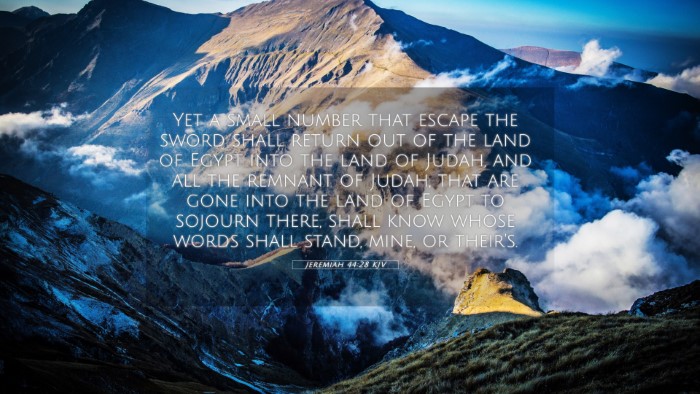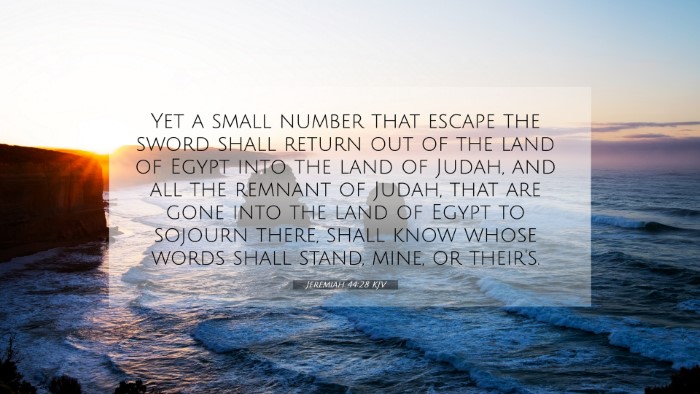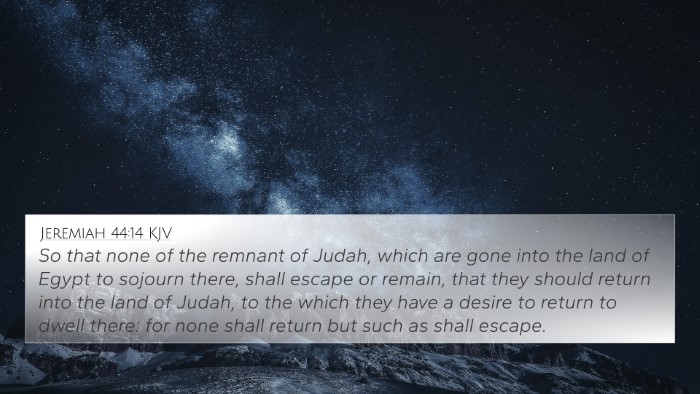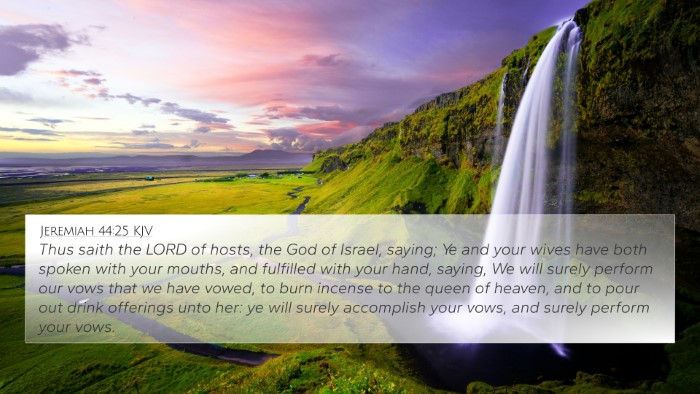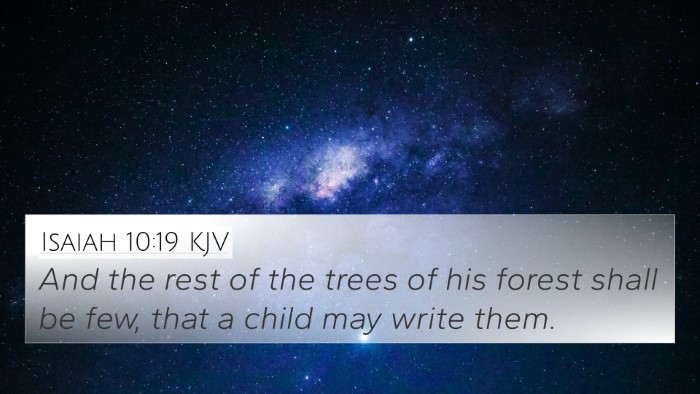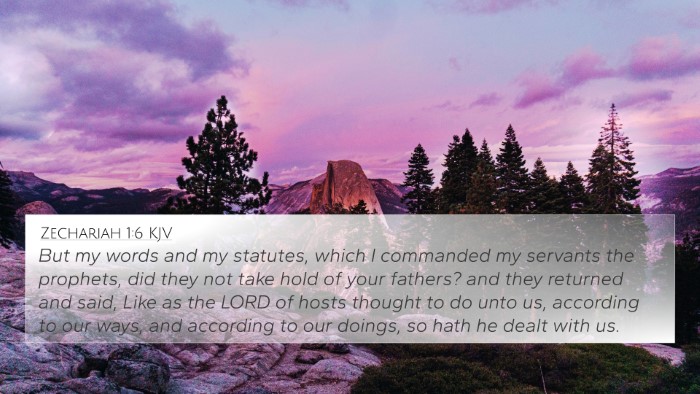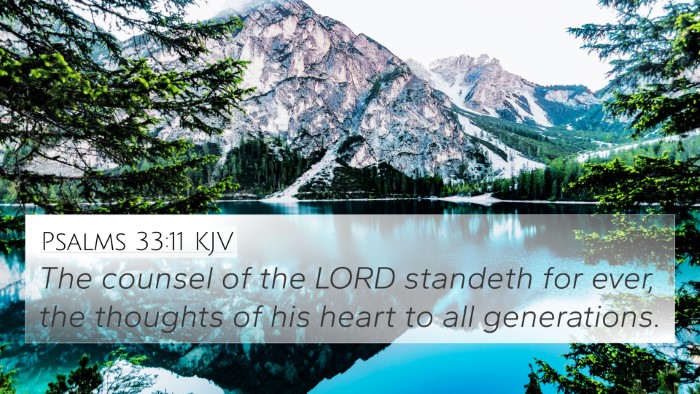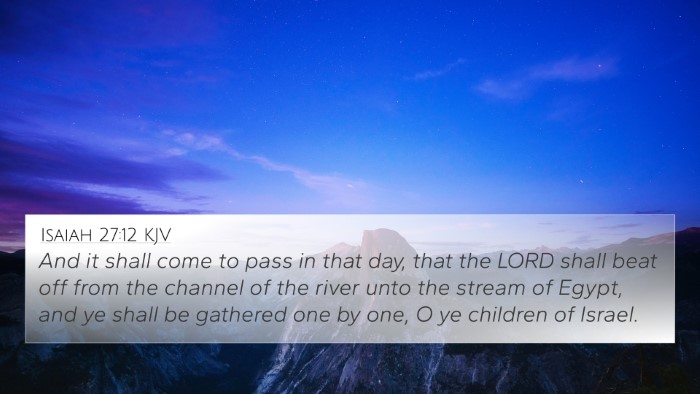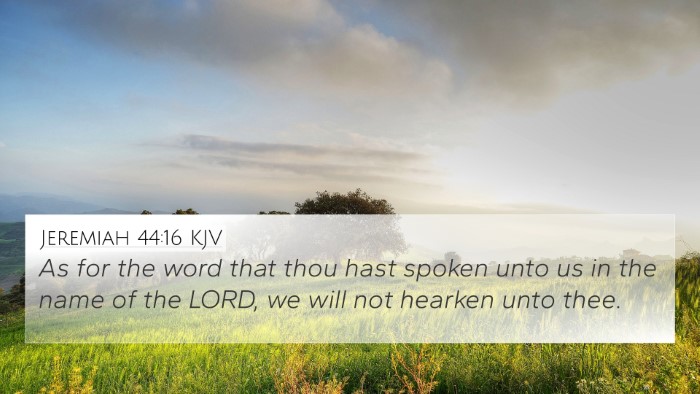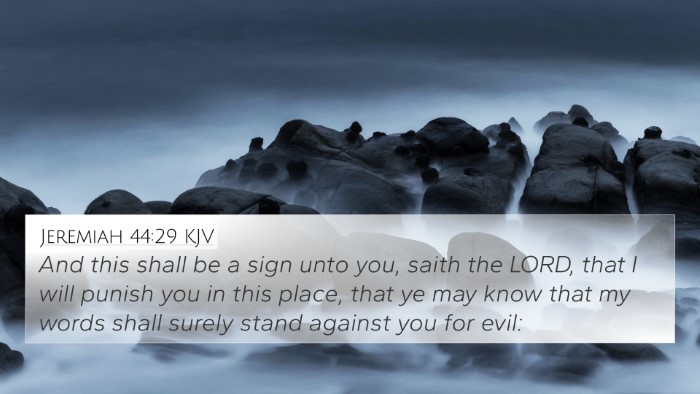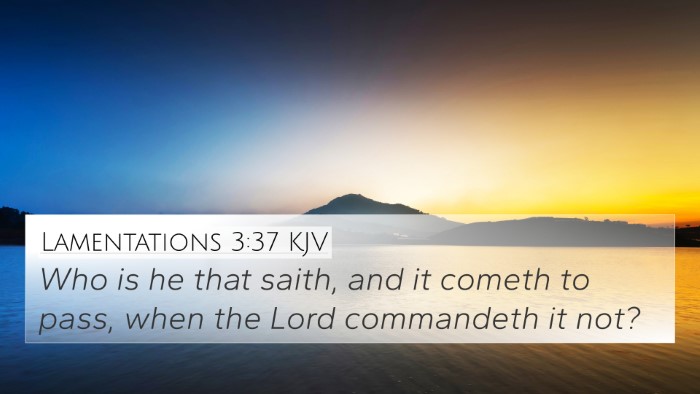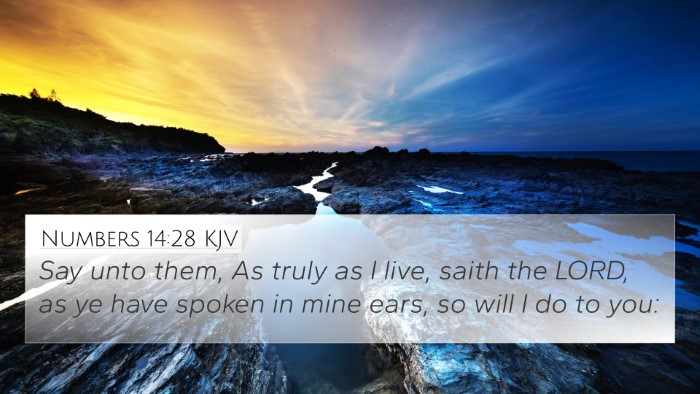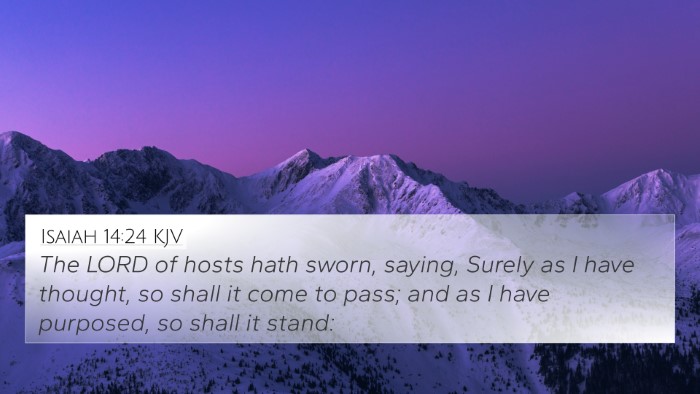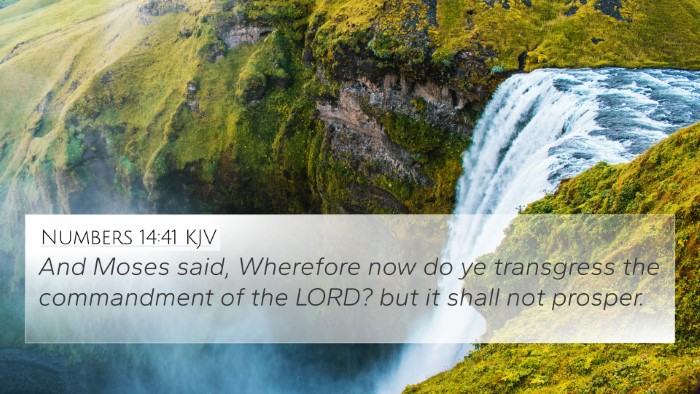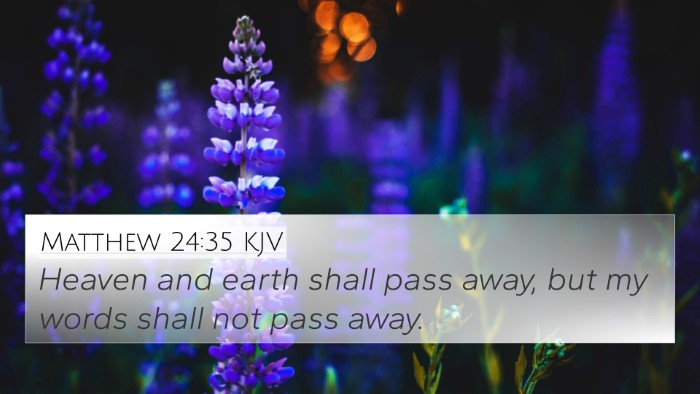Understanding Jeremiah 44:28
This passage, Jeremiah 44:28, offers significant insight into God's relationship with Israel amid their idolatrous practices, showcasing themes of judgment, mercy, and the consequences of disobedience.
In this verse, God communicates a warning to the people of Judah living in Egypt. He reminds them that despite their persistent idol worship, which had led to their downfall, there remains a remnant who will return and be preserved. This remnant will witness the restoration of God’s favor. The verse encapsulates a turning point within the larger narrative of hope and redemption.
Commentary Insights
-
Matthew Henry:
Henry emphasizes the divine declaration that a remnant will be saved amidst judgment. This highlights God's mercy as He offers a chance for repentance and restoration, signifying hope for the faithful.
-
Albert Barnes:
Barnes notes the significance of the remnant. The promise of survival and eventual return carries weight, representing that not all will perish due to the disobedience of the many. This speaks to the concept of grace in the face of widespread sin.
-
Adam Clarke:
Clarke provides context by discussing the historical significance of the exiles in Egypt. He underscores their stubbornness and the consequences of turning away from God, yet reassures that a remnant will be preserved, capturing the theme of hope.
Key Themes in Jeremiah 44:28
- Judgment and Mercy: This verse depicts God's judgment on idolatrous actions but also His mercy towards a faithful remnant.
- Hope for the Future: The promise of a return reinforces that even in the direst situations, God provides hope and restoration.
- The Concept of a Remnant: The idea that a small group remains faithful is a recurring theme throughout scripture.
Bible Verse Cross-References
To deepen the understanding of Jeremiah 44:28, several other biblical passages can be explored. These cross-references create a web of connections that highlight the overarching narrative of God's engagement with His people:
- Isaiah 10:20-22: The remnant of Israel shall return to God after the desolation.
- Romans 11:5: A remnant is saved by grace, reinforcing the idea of preservation amidst judgment.
- Ezekiel 14:22-23: The survivors will be a sign of hope to others, reflecting God's mercy.
- Jeremiah 31:7: Prophetic promises towards the remnant being gathered from the east and west.
- Zephaniah 3:12: A humble people will take refuge in the Lord, highlighting God's intent to save the meek.
- Matthew 24:22: For the sake of the elect, those days will be shortened, emphasizing God's protective providence.
- Revelation 12:17: The remnant of her seed which keep the commandments of God speaks to continual faithfulness.
Connections Between Bible Verses
Jeremiah 44:28 showcases the theme of God's unwavering fidelity to His promises, and several patterns can be drawn:
-
Thematic Connections: The remnant motif appears in various places, indicating God's ability to preserve a faithful group throughout history.
-
Old Testament and New Testament Links: The promise of preservation and salvation transitions from Old Testament prophets to New Testament teachings, reinforcing the continuity of God's character.
Tools for Bible Cross-Referencing
When studying passages like Jeremiah 44:28, utilizing cross-referencing tools can enhance comprehension. Consider the following:
- Bible Concordance: Such tools index key terms and themes allowing deeper exploration of related verses.
- Cross-Reference Bible Study: Engaging in a systematic study can reveal intertextual relationships.
- Bible Cross-Reference Guide: Guides assist in identifying how verses connect, making study efficient.
Conclusion
Jeremiah 44:28 encourages believers to reflect on God's judgment tempered by mercy. The assurance that a remnant will be preserved speaks volumes about God's ongoing commitment to His people regardless of their failures. This verse, surrounded by a network of thematic connections and insightful commentary, serves as both a warning and a beacon of hope.
Additional Reading Suggestions
For a more comprehensive understanding, consider exploring:
- How to find cross-references in the Bible.
- Identifying connections between the Old and New Testament.
- Comparative study of Pauline epistles.
- Cross-referencing Psalms with New Testament teachings.

